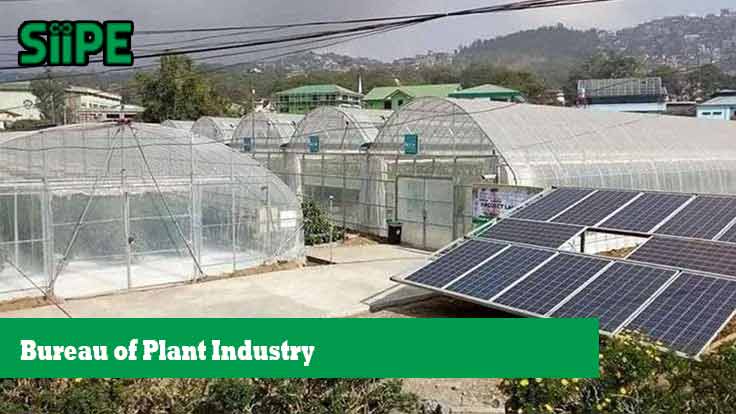The Bureau of Plant Industry (BPI) is a government agency or department responsible for promoting, regulating, and supporting the growth and health of a country’s plant-based industries. From agricultural production to plant health inspection, the BPI plays a central role in ensuring food security, supporting farmer livelihoods, and contributing to national economies. In this article, we explore the role of the Bureau of Plant Industry, its major functions, achievements, and its significance in today’s agricultural landscape.
What Is the Bureau of Plant Industry?
The Bureau of Plant Industry is often part of a nation’s Ministry or Department of Agriculture. Its primary mission is to regulate and enhance the plant industry sector, which includes crops, fruits, vegetables, ornamental plants, seeds, and plant-derived products. The BPI is also instrumental in enforcing phytosanitary standards to protect crops from pests and diseases.
For example, in the Philippines, the BPI is an attached agency under the Department of Agriculture. It supports plant industry development through research, extension services, quarantine regulation, and seed certification.
Key Functions of the Bureau of Plant Industry
The functions of the BPI may vary slightly depending on the country, but generally include the following:
1. Regulating Plant Health and Quarantine
One of the most important responsibilities of the BPI is ensuring that plants, seeds, and plant products are free from pests and diseases. The agency implements plant quarantine protocols at international borders to prevent the introduction and spread of invasive pests.
This includes:
-
Issuing phytosanitary certificates
-
Conducting inspections and pest risk assessments
-
Managing plant quarantine stations
2. Seed Certification and Quality Control
The BPI oversees the certification of seeds and planting materials to guarantee high-quality crop production. This helps farmers improve yield and promotes the use of superior planting materials.
Activities include:
-
Registering and evaluating seed varieties
-
Certifying seed growers
-
Enforcing seed standards
3. Research and Development
To boost productivity and crop resilience, the BPI supports scientific research on:
-
Plant breeding and genetics
-
Pest management
-
Sustainable farming practices
By investing in innovation, the bureau helps farmers adapt to climate change and evolving market demands.
4. Extension Services and Farmer Support
The BPI provides technical assistance, training, and extension services to farmers, cooperatives, and agricultural stakeholders. These services are aimed at improving farm practices and increasing productivity.
5. Monitoring and Regulation of Agricultural Inputs
The bureau is often tasked with regulating fertilizers, pesticides, and plant growth regulators to ensure they are safe and effective.
6. Export and Import Facilitation
Through phytosanitary inspections and documentation, the BPI facilitates the legal trade of plant products. This ensures that exported goods meet international standards and that imported items are safe and pest-free.
Importance of the Bureau of Plant Industry in National Development
🥦 Food Security
By maintaining crop health and supporting increased production, the BPI contributes directly to national food security. Healthy crops mean consistent food supply and reduced dependency on imports.
💼 Economic Growth
The plant industry generates income for millions of farmers and agribusinesses. A strong BPI enhances productivity and supports the export of agricultural products, leading to higher revenue for the country.
🌱 Sustainability and Climate Resilience
Modern agriculture must balance productivity with environmental protection. The BPI encourages the use of eco-friendly methods such as integrated pest management, organic farming, and climate-smart agriculture.
🌍 International Trade Compliance
Meeting international phytosanitary standards is crucial for global trade. The BPI ensures that plant exports comply with standards from organizations such as the International Plant Protection Convention (IPPC) and World Trade Organization (WTO).
Challenges Faced by the Bureau of Plant Industry
Like many government institutions, the BPI faces a number of challenges:
-
Limited budget and manpower to reach all farming communities
-
Climate change, which increases pest and disease risks
-
Illegal trade of seeds and plant products
-
The need for digitization and improved laboratory infrastructure
Despite these, many BPI agencies are implementing reforms to modernize their operations and reach more stakeholders effectively.
Technological Innovations and Future Outlook
The BPI is increasingly embracing technology and innovation. Some trends include:
-
Use of drones and satellite data for crop monitoring
-
Development of mobile apps for pest identification and seed certification
-
Adoption of blockchain to track seed origins and supply chains
These advancements help make agricultural systems more transparent, efficient, and farmer-friendly.
Bureau of Plant Industry and Climate Action
As climate change becomes a global concern, the BPI’s role is evolving. It now supports:
-
Breeding of drought-resistant and flood-tolerant crops
-
Promotion of climate-resilient farming practices
-
Research into carbon sequestration in agriculture
These initiatives make agriculture more adaptable and contribute to national climate commitments.
Collaboration with Other Institutions
The Bureau of Plant Industry often collaborates with:
-
Universities and research institutions
-
International organizations (FAO, IRRI, CGIAR)
-
Non-governmental organizations (NGOs)
-
Farmer cooperatives
Such partnerships enhance knowledge sharing, funding access, and technology transfer.
Why the Bureau of Plant Industry Matters
The Bureau of Plant Industry is a cornerstone of agricultural development. From safeguarding crops against pests to boosting food security and trade, the BPI’s work has far-reaching impacts on livelihoods, the economy, and the environment. In the age of climate change and globalized trade, a strong, well-equipped BPI is more important than ever.
Countries investing in their plant industry bureaus are investing in a resilient, sustainable, and food-secure future.











